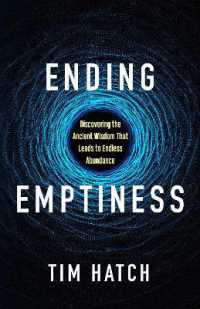- ホーム
- > 洋書
- > ドイツ書
- > Humanities, Arts & Music
- > Philosophy
- > general surveys & lexicons
Full Description
This book offers new essays exploring concepts and applications of nonideal theory in bioethics. This book begins in Part I with an overview of the foundational tenets of nonideal theory, what nonideal theory can offer bioethics, and why it may be preferable to ideal theory in addressing moral dilemmas in the clinic and beyond.








